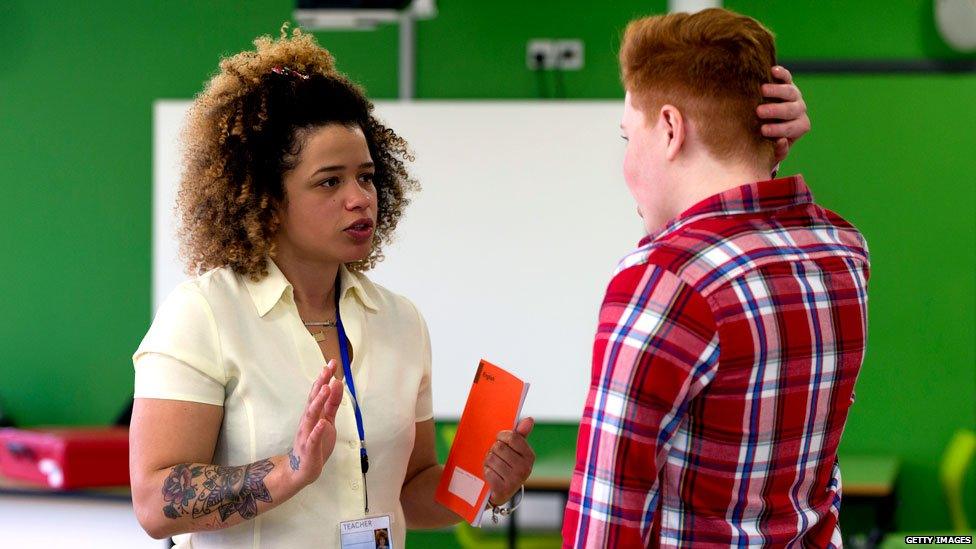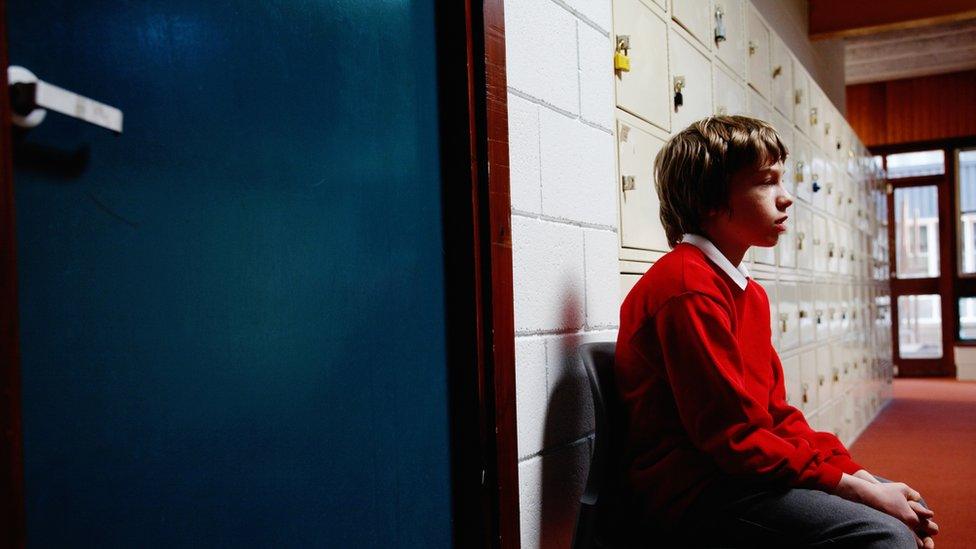Parents being talked into homeschooling troubled children
- Published

Rogue head teachers are talking parents into homeschooling troubled children at risk of exclusion so their results do not count against the school, it is claimed.
Children's services bosses say a minority of heads in England are persuading parents to take on their child's education so as to avoid an exclusion on their record.
They are said to be worried about poor Ofsted inspections, league table positions and even losing their jobs because of academy takeovers.
The Association of Directors of Children's Services said they were concerned about the growth in elective home education "as an intervention", especially among pupils just ahead of sitting their GCSEs.
In a submission to a Commons committee, the ADCS said "exclusive practices" were being used as a "route to [school] improvement".
"Schools and their leaders stand and fall on their reputation, and the most vulnerable learners are being squeezed out of mainstream schooling as a result."
'Vulnerable children'
Debbie Barnes, chair of the association's education achievement committee, told the BBC: "The feedback from colleagues working with schools across the whole of the country is that there's a dialogue between the school and the parent, and they potentially encourage them to consider elective home education.
"The anecdotal evidence that we get is that these are young people who are quite vulnerable, who are at risk of exclusion, so that rather than the school excluding them, the child is electively educated at home.
"It's sold to the parents as a way of not getting an exclusion on the child's records - that it's better for them."

Mrs Barnes said many parents who choose to homeschool do a fantastic job, but she added: "We would want to be reassured that the parents truly understand what responsibility they're taking on when they're taking on the home education of a child."
She stressed that "the vast, vast, vast majority of head teachers that we work with all want to be inclusive and would want to do the best for their children".
"The issue is around the high stakes inspection regime, which makes it very tough for head teachers to always offer inclusion.
"We are talking about Ofsted and the school league tables - if you are rated inadequate you might become an academy - that means the head teacher loses their job," she said.
"Education is that pathway out of poverty so it's a really serious and crucial decision to exclude a child from a mainstream school.
"We know that outcomes are worse when a person is excluded and they are much more at risk of child sex exploitation."
'An irritant'
Geoff Barton, general secretary of the Association of School and College Leaders, said: "There are transparent procedures for exclusions, and it's absolutely deplorable if anybody isn't following these - we are talking about the most vulnerable children.
"They can be an irritant in a school but there are processes that have to be followed."
He added that he did not think this "off-rolling" practice was widespread, but that head teachers had been saying they have been hearing more murmurs about it.
He added that when there was talk of the high stake accountability regime as a cause, "the risk is that this legitimises behaviour that may be happening".
Mr Barton said his association had been working with other teaching organisations to draw up a model of ethical leadership.
A Department for Education spokesman said the decision to home educate "should always be made by the parents in the best interests of the child" and it was "never appropriate for a school to pressurise a parent into taking this decision".
"Any decision to exclude a pupil should be lawful, reasonable, and fair, and permanent exclusion should always be used as a last resort," the spokesman continued.
"If a school believes that there are grounds to exclude a child, either for a fixed period or permanently, there is a process which must be followed, which includes the opportunity for a parent to ask for the decision to be reviewed."
- Published27 November 2017
- Published20 July 2017
